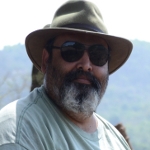The Archaeology of Food: How and Why we eat what we do
-
|
04 Sep
2024
|
Indian Aesthetics
|
|
Kurush F. Dalal
|
Image:Oldest Olive oil in a glass jar 79 AD from Pompeii
Most of the history of our food is lost to antiquity. This is because humans and their eating patterns are much older than history. At its very oldest history goes back 5500 years, humans on the other hand have been on the face of this planet for over 2 million years. Human Food History is divided into 2 very clear sets; Prehistoric where for most of the 2 million plus years we went from scavengers and opportunistic hunters gatherers to specialised hunter gatherers and the ultimate pack killing machines on the planet, and Neolithic till date the story of peoples who grow their own food. The first starts 2 million plus years ago and ends roughly 11 thousand years ago where the second period starts and in which we live today. The study of human food is thus mainly the province of archaeology and not history. This talk, which dwells mainly on the subcontinent and mainly on the 2nd period is the introduction to that story.
Free In-Person only Public Lecture at JPM institute.
Duration -
September 4, 2024
Timing: Tea: 6:00 PM | Lecture: 6:30 - 8:30 PM IST
Registrations Closed

Kurush F. Dalal
Kurush F Dalal has a BA in Ancient Indian History and History from the University of Mumbai, an MA in Archaeology as well as a PhD on the early Iron Age in Rajasthan, both from Deccan College, Pune University. Subsequently he has excavated the sites of Sanjan, Chandore and Mandad: the last site has revealed a hitherto unknown Indo-Roman Port site with ancient antecedents. Dr. Dalal also actively works on Memorial Stones and Ass-curse Stones in India and dabbles in Numismatics, Defense Archaeology, Architecture, Ethnoarchaeology and allied disciplines. He is the CoDirector of the Salcette Explorations Project. He has published extensively and taught widely. Dr Dalal inherited a catering business and has been researching food all his life. In the last decade he has lectured on Food and Archaeology and Culinary Anthropology, and has run The Studying Food Workshop since 2019. As a culinary museum consultant and an archaeological museum consultant he is currently working on a corporate multi-museum project. He is now Chief Education Officer (CEdO) at Gyaan Factory.